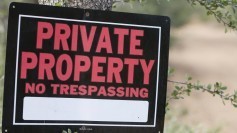Why Conservatives And Libertarians Should Be Sceptical Of The Copyright Monopoly

Copyright Monopoly – Christian Engström: The book Copyright Unbalanced – From Incentive to Excess appears to be very interesting.
From the ad for the book:
Conservatives and libertarians, who are naturally suspicious of big government, should be skeptical of an ever-expanding copyright system. They should also be skeptical of the recent trend toward criminal prosecution of even minor copyright infringements, of the growing use of civil asset forfeiture in copyright enforcement, and of attempts to regulate the Internet and electronics in the name of piracy eradication.
Copyright Unbalanced is not a moral case for or against copyright; it is a pragmatic look at the excesses of the present copyright regime and of proposals to expand it further. It is a call for reform—to roll back the expansions and reinstate the limits that the Constitution’s framers placed on copyright.
I have read the first chapter which is available freely, and that chapter made a lot of sense. It starts with a discussion of property rights:
Traditional property rights, often associated with John Locke’s theory of rights, include rights to real property, personal property, and property in one’s self. The legitimacy of these rights is not just uncontroversial among libertarians and conservatives, it is foundational to their respective political ideologies.
Traditional property rights predate the Constitution, and their contours were developed over centuries in customary law and the iterative and evolutionary process that is the common law. The main text of the Constitution doesn’t even mention a right to property, signaling that the Framers took it for granted.
So far, so good. Although the author Jerry Brito does not mention it, he could have added that property rights are pretty much uncontroversial not only among conservatives and libertarians, but in most other political camps as well.
He then continues (writing from a US perspective, where copyright is mentioned in the Constitution):
Copyright is a very different animal. In contrast to traditional property, copyright was created by the Constitution; it did not exist in the common law. Without the Constitution’s copyright clause, there would be no preexisting right in creative works. What’s more, the copyright clause does not recognize an inalienable right to copyright, but instead merely grants to Congress the power to establish copyrights. Copyright therefore stands in contrast to traditional property in that the legislature has complete discretion whether to grant the right or not.
The concept of property and basic property law developed spontaneously long before the US Constitution was drafted, whereas copyright is a system that was invented by legislators.
This does not in itself necessarily mean that copyright is wrong or evil, but it does mean that the legislators who built the system will had to base it on guesses rather than knowledge that had evolved over time. How can we be sure that the legislators (Congress, in the US case) guessed right?
Without copyright, there would still be songs written and movies made. Congress just thinks there wouldn’t be enough. So, it offers a subsidy in the form of copyright protection to incentivize more creative output. … How does Congress know we wouldn’t have “enough” creative works without copyright? And assuming it knows that, how does it know the right amount of incentive to offer?
The answer is of course that the legislators don’t know for sure what is the ”right” amount of copyright, and there are strong indications that the strengthening of copyright and copyright enforcement that has taken place for the last decade has gone much further than any reasonable arguments could support.
The author gives several examples of excesses in recent legislation, and notes that there is a mismatch between copyright legislation and the general public’s perception of what would be fair and reasonable. He makes an interesting comparison:
Donald Harris has compared the current state of affairs to the Prohibition era because law has outpaced societal norms. There might also be a comparison to the drug war.
He concludes:
Conservatives and libertarians, who are naturally suspicious of big government, should be skeptical of an ever-expanding copyright system. Congress today routinely shifts the copyright balance in only one direction: away from public access and freedom, and toward greater and deeper privileges for organized intellectual property [sic] interests. If we take economics and public choice seriously, then we should be concerned.
There is no incompatibility between respect for property and wariness of a radically unbalanced copyright system. Conservative politicians are beginning to understand this.
Speaking from a European perspective, I unfortunately can’t say that I have seen many signs in the European parliament that the conservative politicians there are beginning to understand the issue. But if it is indeed true that there is intellectual movement among conservative politicians in the US, maybe some of that will spill over to Europe in due course.
That would be very welcome.
Read the chapter Why Conservatives and Libertarians Should Be Skeptical of Congress’s Copyright Regime.
This article originally appeared at MEP Christian Engström’s blog.

Rick Falkvinge's Blog
- Rick Falkvinge's profile
- 17 followers



